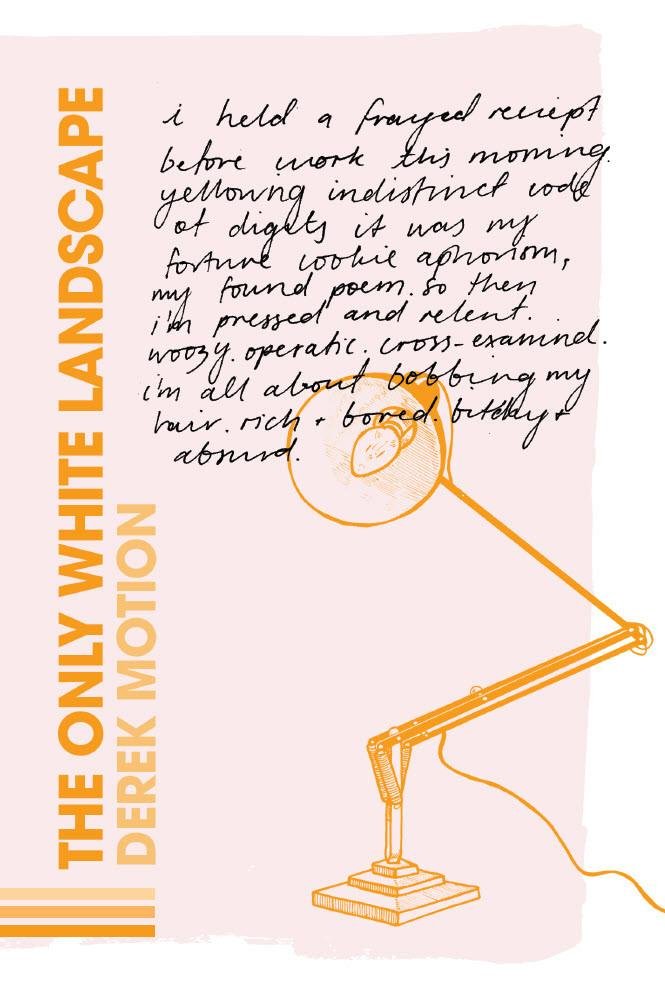The Only White Landscape

The Only White Landscape shows the effort to think in time with the imperfection of language as it nudges into consciousness and out of order; as it turns into itself as if on a pin or because of some new patch of petrol-, Pantone-, mid-morning light. The poems are scenes of ambivalence and loss, moving between states of recollection and projection, regret and desire, clarity and obscurity. Like a break-up, or a film, or a dream, or a recipe, they occupy a temporality that appears like a future imagined in a past, and lamented as a present that crushes.
'The Only White Landscape is an assembly point. Past instances of thought and memory have come together as directed when under threat. The swells of real-life changes underpinning the poetry are physical, social, geographic and romantic. But, that's so usual: the attempt to find singularity in the ruptures — not meaning, not really. From loneliness to only-ness. Sometimes I run at night through the fields around my house and then sit on carpet to record the resulting language. 'I feel so lyrical,' I remember thinking at one point, mid-manuscript. I'm always seeking recognition. I want a conversation to surround my personal thoughts. I want to influence 'you' — your actions and opinions. Poetry can and will measure up to somebody's sincerity levels but then he / she still might not love you. All the feels laid bare, the words persisting as evidence of what you might have thought, felt. The Only White Landscape is a submersion in the past, a landscape stripped of comforting colour, a set piece refigured in post like a photograph, my choices of emphasis directing and deflecting your attention. It feels like an outcome. I hope the poems keep you just as long as you want to be kept.' — Derek Motion
